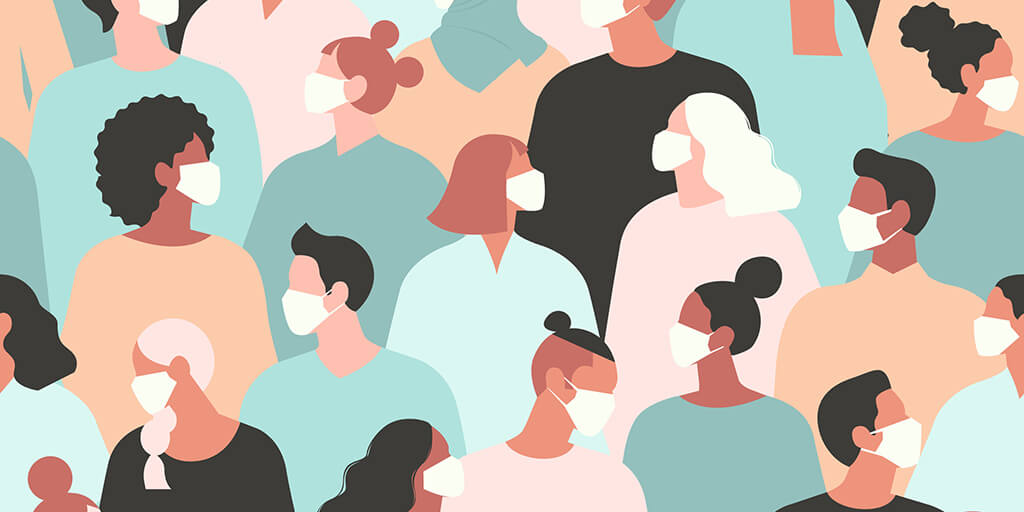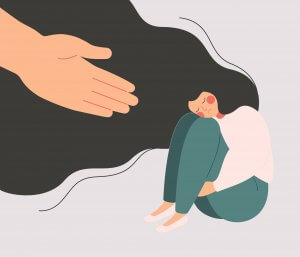
Living with the invisible threat
COVID19 has brought about some challenges that for many of us are extraordinary. None of us could have anticipated the level of personal and professional challenge that would be imposed on us in order to keep us safe. This blog looks at some basic 'needs' we may all have to live with this invisible threat.
This blog is authored by Mandy Flint, a Senior Advisor in the Australian Childhood Foundation’s Professional Education Services.
COVID19 has brought about some challenges that for many of us are extraordinary. None of us could have anticipated the level of personal and professional challenge that would be imposed on us in order to keep us safe from this invisible threat.
Living with the ‘invisible threat’ leaves us with feelings of uncertainty and a distinct lack of control over what and how we live our lives. It also challenges our world view as we navigate day to day life in isolation and with physical spacing. Our usual strategies for managing stress may have been curtailed and we feel this increasing need to gain some control and predictability in our lives?

What is evident to me at this time is that these feelings of powerlessness and fear are somewhat akin to the experiences of trauma for children. The unknown threat is ever–present. We don’t know where it is or when it could strike, but our nervous system is activated in anticipation of its imminent attack.
In response to this, we change our routines and daily habits, some self-imposed, others imposed by those in power. Whilst this gives us a short-term sense of safety, it also feels strange and unfamiliar. This then drives us to look for order and control in our world to find some sense of safety and predictability.
As I reflect on the small ways I am seeking out control and structure in my day, it reminds me of the children we work with. How they use what resources they have learned in their short time on this earth, to manage their sense of anxiety and uncertainty. It may seem as though they are seeking to control situations or others around them, are hypervigilant or moody, or engaging in self-soothing behaviours such as over or under eating, fidgeting, pacing or rocking for example.
So, as an adult with a mostly fully–functioning prefrontal cortex, I’ve been reflecting on what I have needed throughout this time and what many children need in any situation where their sense of safety and connection has been disrupted.
Connection:
Being able to connect, seeking comfort, co-regulate with significant others in your world will help you to stay grounded and meets your emotional needs. This includes touch. Deep pressure is known to dampen down the nervous system, so hugging is essential for safety and coregulation for children, who seek this out.
Predictability:

Whilst predictability feels very different in this new world, working out what is in your control and creating small opportunities for structure and routine can help. i.e: dinner at the table every night, a story before bed, a walk in the morning, a phone call with grandma at 4 pm.
Move your body:
Movement lets us know we are alive and helps us to feel a sense of power and efficacy within. It’s also important for mental health and releasing feel–good hormones. Structuring in regular opportunities to move our bodies is essential.
Play/create:
As Stephen Porges says, “Play is a neural exercise”. Play provides the opportunity for children to express their feelings and needs, to understand the world around them and to learn social and emotional skills. For adults, it helps us to balance out our worries and is good for our general health and wellbeing. Getting creative is part of that. Engaging in art and play gives us a space for self-expression and a tool to process some of the fear and anxiety elicited in these uncertain times. Having creative projects to do as a family builds connection and also provides a sense of predictability and routine, something to work towards.
Elicit hope:

Understanding that this time won‘t last and that life will eventually return to ‘normal’ is important. We also look at the strengths we have and how they have got us through other difficult times in the past. Perhaps we look for the silver lining? What has been positive that has come out of this situation? Less pollution, more quality time with family, etc
Be kind to yourself:
You will have good and bad days and that is ok. Children will be the same. Having compassion for yourself and your children is important at this time. Know that you’re doing the best you can and seek out support when you need it.
Support numbers:
1800 Respect 1800 737 732 https://www.1800respect.org.au/
Kids Helpline 1800 551 800 https://kidshelpline.com.au/
Lifeline: 13 11 14 https://www.lifeline.org.au/
Beyond Blue: 1800 512 348 https://coronavirus.beyondblue.org.au/
Further Reading:
Bessel VanderKolk: When the COVID-19 Pandemic Leaves Us Feeling Helpless:
https://www.nicabm.com/when-covid19-leaves-clients-feeling-helpless/
Stephen Porges: The Pocket Guide to the Polyvagal Theory: The Transformative Power of Feeling Safe, 2017
